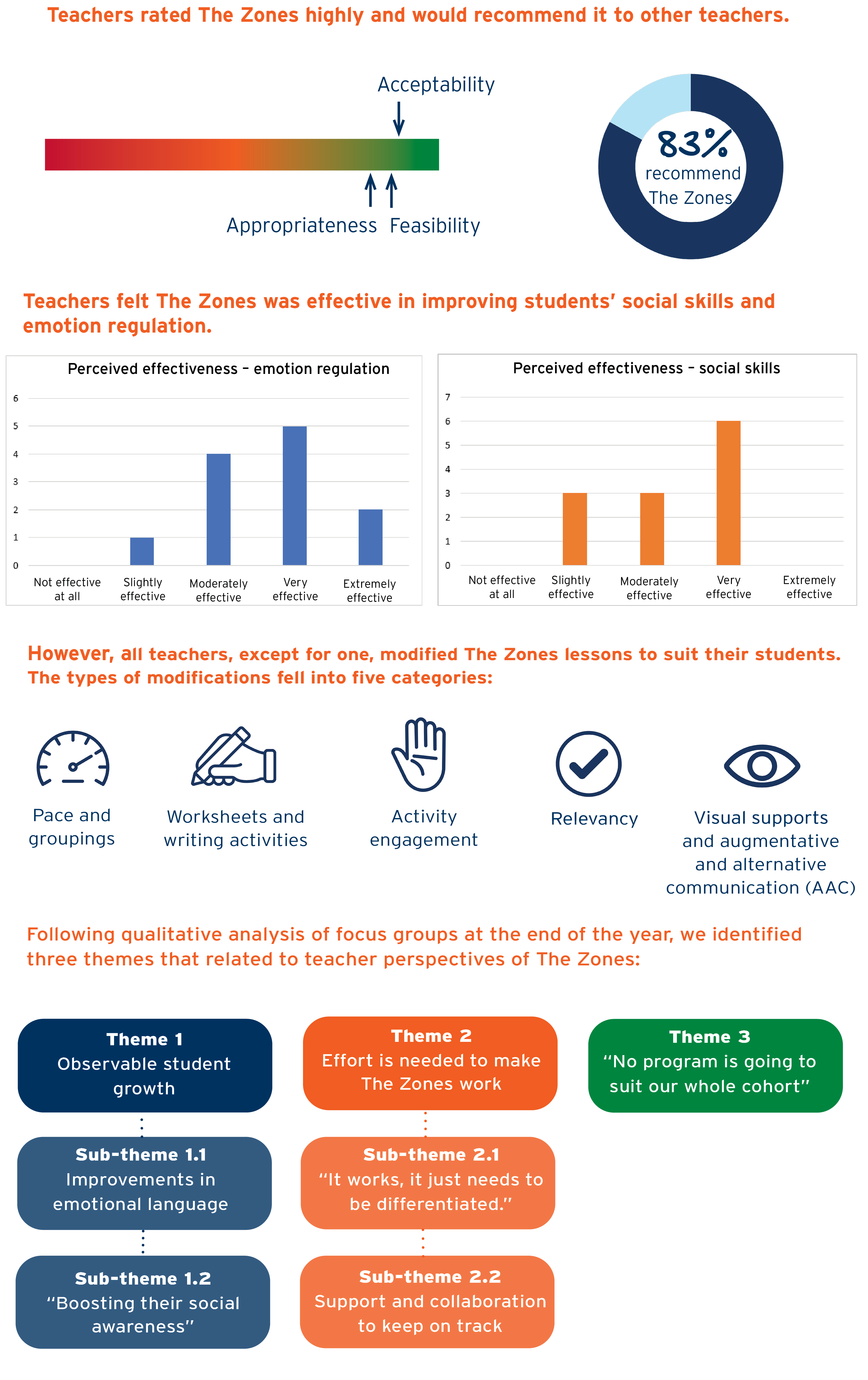Why
Autistic people experience disproportionately high rates of mental health challenges. This is partially attributed to emotion regulation difficulties often seen and reported by Autistic children and adults.
Emotion regulation difficulties occur when people find it challenging to effectively manage and respond to emotions they experience.
The Zones of Regulation® (The Zones) is a curriculum that has been used in schools across Australia to help children, including Autistic children, develop awareness of emotions and skills for regulation.
The curriculum consists of 18 lessons (taught over 17 weeks, minimum of 30–60 minutes per week) which include a range of group instruction, games, videos, worksheets, handouts and independent activities.
The Zones uses four colours to help people become aware of their feelings, behaviours and thoughts, and provides them with strategies/tools to self-regulate depending on their zone.
Despite the widespread adoption of The Zones, there is no clear evidence-base for the use of The Zones among Autistic students.
How is The Zones used in Aspect classrooms? What accommodations are teachers making? What are teachers' perspectives on the feasibility and usefulness of The Zones?
The research
In this study, surveys, interviews and focus groups were used to find out how 14 teachers from five Aspect schools used The Zones in their classrooms and seek their perspectives about the feasibility and usefulness of The Zones with Aspect students.
Classes consisted of 4–10 students across Kindergarten to Year 6. Most classes had a least one student with an intellectual disability and five students had limited verbal communication.
What we learnt

Find out more
Making a difference
This is the first research study to explore the feasibility and usefulness of The Zones in autism-specific schools. Key takeaways from this study:
- Most teachers find The Zones program acceptable, but it needs significant changes for Aspect students to participate, especially those with intellectual disabilities or who use AAC.
- For students engaging with The Zones, teachers notice better social skills and emotion regulation, though this is based only on teacher observations without objective measures.
- Teachers need support, resources, and access to training, visuals, and modified lesson plans to implement The Zones effectively.
Research team
Dr Abbey Love, Aspect Research Centre for Autism Practice (ARCAP)
Dr Ru Ying Cai, ARCAP
Dr Vicki Gibbs, ARCAP
Danielle Roxburgh, Aspect Therapy
Elizabeth Dorn, Aspect Therapy
Started
2023
Ends
2024
Funding
Aspect

